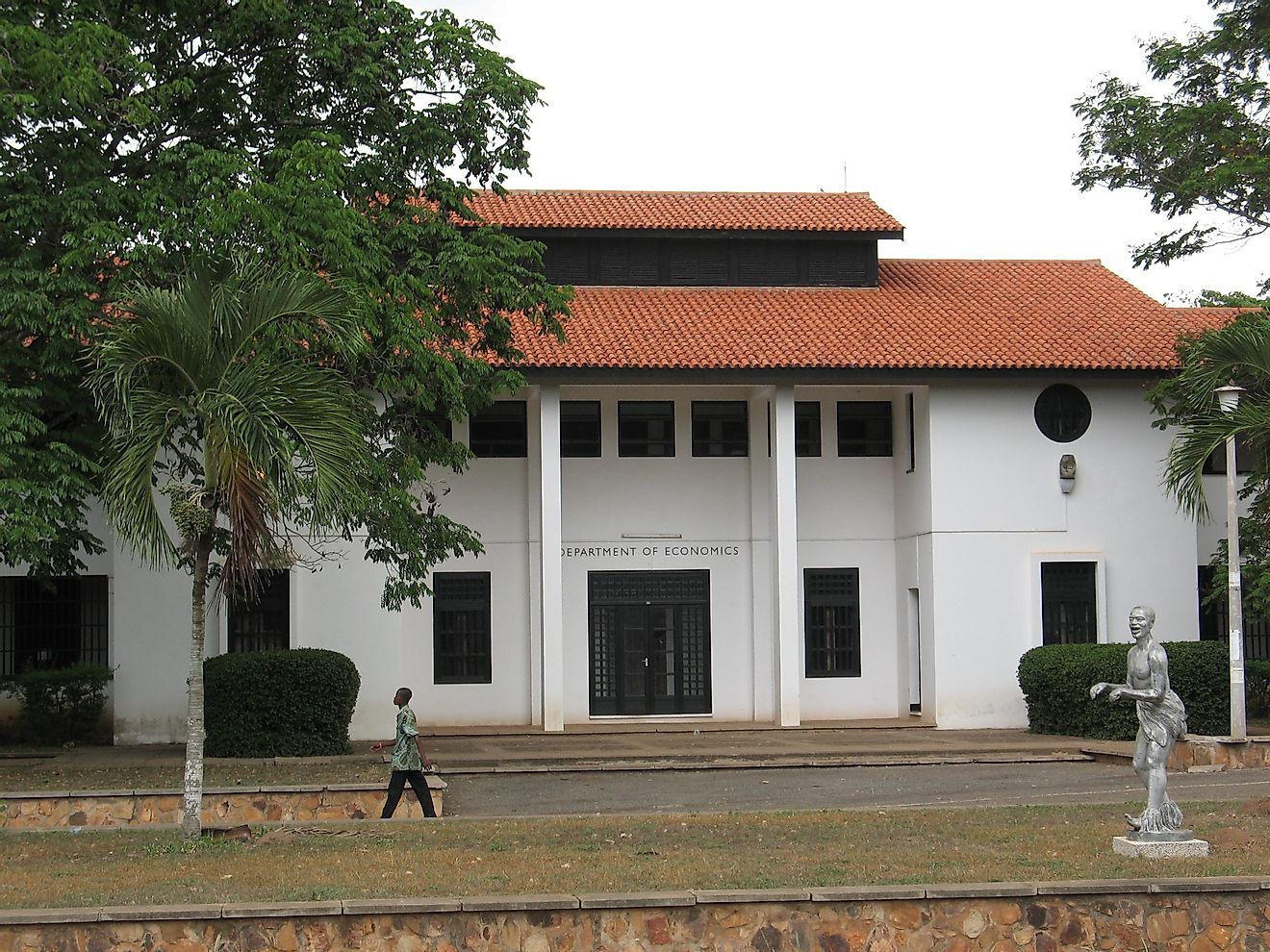University of Ghana - Educational Institutions around the World

5. Founding
The University of Ghana was founded on August 11th, 1948 , In Legon Boundary, Accra, when Ghana was still a British colony. It was founded as the University College of the Gold Coast, as part of University of London, on the recommendation of the Asquith Commission on Higher Education and permission of the British government. At first, it focused on providing liberal arts, social sciences, general sciences and medicine. David Mowbray Balme served as the first Principal of the University College of the Gold Coast, and he contributed greatly to the establishment and early development of the university. It gained full university status in 1961 making it the oldest and largest Ghanaian university.
4. History
At first the university was meant to be a college of the University of London. The British government set up an Inter-Universities Council to advise on all matters relating to the university. It oversaw academic standards and served to approve all academic appointments. The university in turn received funds from the British government. Gradually it developed more autonomy, and courses were modified to better suit local conditions, but University of London still had the sole right to confer degrees. After Ghana gained independence from the Britain in 1957, during 1960-1961 academic year, the College Council made a request to the Government Ghana to make the University College into an independent University with its power to award degrees. In 1961, the government approved the request and the University of Ghana was set up. Dr. Kwame Mkrumah, the first president of the Republic of Ghana, became the first Chancellor of the University.
3. Structure
Currently over 38,000 students coming from more than 70 countries are enrolled, pursuing undergraduate and graduate degrees. The university is run on a collegiate system and comprises of four colleges: College of Basic and Applied Sciences; College of Education; College of Human Sciences; and College of Humanities. In addition, it also has several research institutions and centre, including Noguchi Memorial Institute for Medical Research (NMIR), Centre for Tropical, clinical Pharmacology and Therapeutics, Regional Institute for Population Studies, Institute for Environmental and Sanitation Studies, as well as the Institute for Statistical, Social and Economic Research.
2. Rankings
As the oldest university in Ghana, the University of Ghana has over the years grown to become one of Africa's most reputable universities, and it attracts students and scholars from all over the world. According to the university ranking compiled by Thompson Reuters, University of Ghana ranks 10th on the African continent, and ranks 664th globally. The newest Times Higher Education World University Ranking ranks University of Ghana in the band of 601-800 for institutions worldwide. These rankings reflect the university's quest in becoming a continent-wide and world-class university.
1. Alumni
As a rapidly growing world-class university and one of the best universities on the African continent, University of Ghana has produced many notable Alumni. Nana Dr. S.K.B Asante, leader of Asokore Traditional area, member of the Ghana Academy of Arts, and Visiting Professor at the University of Ghana, also attended Achimota School at the University of Ghana. Ekow N. Awoonor, renowned lawyer and prominent member of the Ghana Bar Association, graduated from the University of Ghana with a Bachelor of Law degree in 1971.











